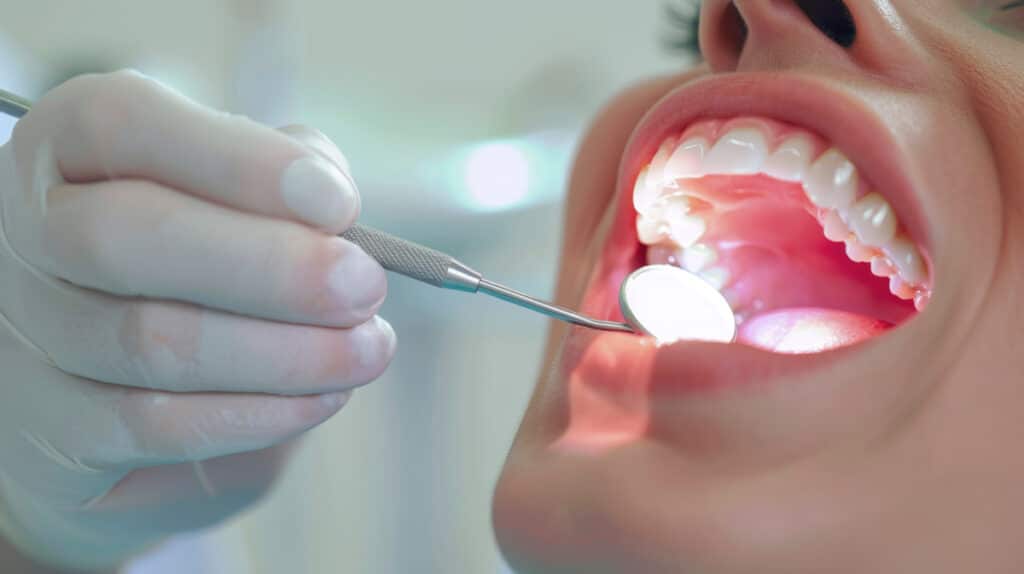Tooth pain can be one of the most distressing experiences.
Whether it’s a throbbing ache or a sharp sensation, dental pain often signifies underlying issues that need immediate attention.
This post will explore how dentists can help alleviate tooth pain, covering effective treatments, preventive measures, and home remedies.
If you’re experiencing a sore tooth or persistent toothache, read on to discover valuable insights that can guide you toward relief.
The importance of dental care
Dental health is a vital component of overall well-being.
Regular dental care not only helps to prevent tooth decay and gum disease but also plays a significant role in maintaining good oral hygiene.
When you see a dentist regularly, you’re more likely to catch potential problems before they escalate into painful conditions.
Good oral hygiene practices and routine check-ups are essential for preventing dental problems that could lead to severe toothache pain and ensuring effective toothache pain relief.
Common causes of tooth pain
Tooth pain can stem from various factors, including tooth decay, dental infections, and even issues related to the gums. Understanding these causes can help you identify when to seek professional help.
Common symptoms of dental pain may include throbbing pain, sensitivity to temperature, or discomfort when biting down.
Factors like stress, grinding teeth, or trauma can also contribute to a sore tooth or persistent toothache.
Understanding tooth pain
Tooth pain can be classified into several types, each indicating different underlying causes:
Dull, persistent pain: Often associated with tooth decay or cavities.
Sharp, sudden pain: This type can occur due to a tooth fracture or exposed dental pulp.
Throbbing pain: Commonly linked to a dental abscess, which is an infection at the root of a tooth.
Sensitivity pain: Usually felt when consuming hot or cold substances, indicating sensitive teeth or receding gums.
Symptoms to watch for
Being aware of specific symptoms can help you determine whether it’s time to see a dentist. These may include:
- Continuous or throbbing pain
- Swollen gums or an aching tooth
- Pain when chewing or biting down
- Sensitivity to hot or cold temperatures
- A bad taste or odour in the mouth, often indicating a tooth infection

Role of Dentists in Pain Management
Diagnosis of tooth pain
When you see a dentist for tooth pain, the first step is a thorough examination.
The dentist will assess the affected area, take X-rays if necessary, and identify the underlying cause.
This diagnosis is crucial for determining the most effective treatment plan to relieve pain and address the source of the problem.
If tooth pain persists despite treatment, further investigation may be needed to rule out other issues, such as impacted wisdom teeth or underlying gum disease.
Treatment planning
Once the underlying cause is identified, the dentist will create a personalised treatment plan.
This may include fillings for cavities, root canals for infected teeth, or more complex procedures like extractions for wisdom teeth or dental implants for severely damaged teeth.
Treatment plans may also include recommendations for managing pain at home, especially if there is a chance that the affected tooth may take time to heal.
Preventive measures
Regular check-ups
One of the best ways to alleviate tooth pain is through preventive care. Regular dental check-ups enable your dentist to detect early signs of tooth problems, allowing for timely interventions before pain develops. Most experts recommend visiting the dentist at least twice a year for cleanings and exams.
Good oral hygiene practices
Maintaining good oral hygiene is essential for preventing tooth decay and gum disease. Here are some practices to incorporate into your routine:
- Brush your teeth at least twice daily with fluoride toothpaste.
- Floss daily to remove food particles and plaque between teeth.
- Use an antibacterial mouthwash to help reduce bacteria in your mouth.
- Avoid sugary snacks and beverages that can contribute to tooth decay.
In addition to regular brushing and flossing, consider using a soft-bristled toothbrush to avoid irritating sensitive teeth or swollen gums.
Common treatments for tooth pain
Fillings for cavities
If tooth decay is the cause of your pain, your dentist may recommend fillings.
This procedure involves removing the decayed portion of the tooth and filling it with a material such as composite resin, amalgam, or glass ionomer.
Fillings can help relieve tooth pain and restore the tooth’s function.
Root canals for infected teeth
In cases of severe tooth pain due to a tooth infection or damaged dental pulp, a root canal may be necessary.
During this procedure, the dentist will remove the infected pulp from the inside of the tooth, clean and disinfect the area, and then fill it with a biocompatible material.
Although root canals are often feared, they can provide significant pain relief and save the tooth from extraction.
Advanced treatments
Periodontal treatments
For those experiencing pain related to gum disease, periodontal treatments may be recommended.
These can include deep cleanings, scaling and root planing, or even surgical interventions for advanced cases.
Effective treatment can help alleviate dental pain caused by swollen gums and infection.
Dental implants for severe cases
In instances where a tooth is beyond repair, dental implants may be the best option.
This procedure involves surgically placing a titanium post into the jawbone to serve as a replacement root. Once healed, a crown is placed on top, restoring function and aesthetics while alleviating pain from an aching tooth.
Dental implants not only improve functionality but also help maintain bone density in the jaw.
Home remedies for toothache pain relief
While professional treatment is essential for long-term solutions, several home remedies can provide temporary relief from toothache pain. Several home remedies can provide natural toothache pain relief, using ingredients like crushed Tylenol, garlic, cloves, and ginger to numb pain and reduce inflammation.
Common over-the-counter pain relievers, such as ibuprofen or paracetamol, can help reduce inflammation and alleviate tooth pain. Always follow the recommended dosage on the label.
Clove oil is a well-known natural remedy for toothache relief due to its antibacterial properties. Applying a few drops of clove oil to a cotton ball and placing it against the affected area can help reduce pain. Other natural remedies include:
Salt water rinse: Mixing half a teaspoon of salt in warm water and rinsing your mouth can help reduce inflammation and promote healing. A saltwater rinse not only helps cleanse the affected area but also can soothe irritated gums and help with dental abscesses.
Hydrogen peroxide rinse: A diluted hydrogen peroxide rinse can act as a natural disinfectant, helping to alleviate dental pain and bacteria. However, it’s essential to use it cautiously and avoid swallowing any solution.
Cold compress or ice pack: Applying a cold compress to the outside of your cheek can help numb the pain and reduce swelling. This is particularly effective for a swollen area and can be alternated with a warm compress to enhance blood flow.
Peppermint tea: Sipping on warm peppermint tea can provide soothing relief for sore gums and has mild analgesic properties.
When to see a dentist for immediate care
While many tooth pain cases can wait for a dental appointment, some situations require immediate care. Recognising these signs can be crucial:
- Severe Pain: Severe or unbearable tooth pain is often one of the first signs that you need to see a dentist immediately. If your tooth pain persists and does not respond to over-the-counter pain relievers, it could indicate an underlying issue that requires urgent attention. Severe pain can be a symptom of a dental abscess, which occurs when bacteria infect the pulp of the tooth.t.
- Swelling: Significant swelling in the gums, face, or jaw is another critical indicator of a dental emergency. Swelling can signal an infection, possibly resulting in a dental abscess or an impacted tooth. If the swelling is accompanied by pain or fever, it is vital to seek immediate care, as this can indicate a serious infection requiring treatment, such as antibiotics or surgical intervention.
- Fever: A fever accompanying dental pain can indicate a systemic infection that needs prompt medical attention. If you experience a fever over 100.4°F (38°C) alongside dental pain, it’s essential to see a dentist or visit the emergency room. Fever indicates that your body is fighting an infection, and untreated dental infections can lead to more severe health issues.
What to expect during an emergency visit
If you find yourself in a dental emergency, your dentist will quickly assess the situation and determine the best course of action to help relieve your pain.
Treatments may involve draining an abscess, performing a root canal, or prescribing antibiotics to manage infections.
Your dentist will also discuss pain management strategies to ensure your comfort during and after the visit.
Coping strategies during recovery
Managing pain post-treatment
After undergoing dental treatment, it’s normal to experience some discomfort. Here are some strategies to help manage pain:
- Pain relievers: Take prescribed pain relievers as directed by your dentist.
- Avoid chewing: Refrain from chewing on the affected side of your mouth to allow it to heal.
- Head elevation: Keeping your head elevated while resting can help reduce swelling and throbbing pain.
Diet tips for recovery
Opting for soft foods during recovery can ease discomfort. Consider incorporating the following into your diet:
- Mashed potatoes
- Applesauce
- Yoghurt
- Soups and broths
- Smoothies
These soft foods are not only easy to chew but also provide essential nutrients that support healing.
Stay hydrated
Drinking plenty of water can help flush out bacteria and promote healing in the mouth. Warm water rinses can also aid in reducing inflammation and keeping the affected area clean. If you’re looking for a natural disinfectant, you can add a few drops of tea tree oil to your rinses for its antibacterial properties.
Get the tooth pain relief you need!
If you experience persistent toothache or dental pain, it’s essential to see a dentist promptly. Only a dental professional can diagnose the underlying cause of your pain and recommend appropriate treatments to relieve it.
Fulham Road Dental is committed to providing exceptional dental care tailored to meet the unique needs of each patient. Our team of experienced professionals utilises the latest technology and techniques to ensure comprehensive treatments in a comfortable environment.
Whether you’re seeking preventive care, cosmetic dentistry, or emergency treatments, Fulham Road Dental prioritises your health and well-being, aiming to alleviate tooth pain and enhance your overall dental experience.
With a focus on patient education and personalised care, you can trust that your dental health is in capable hands.



